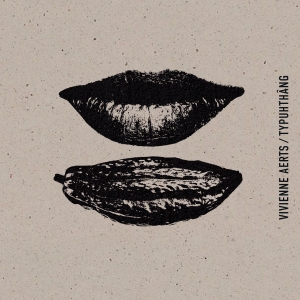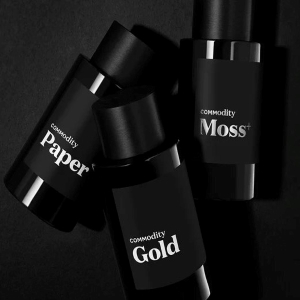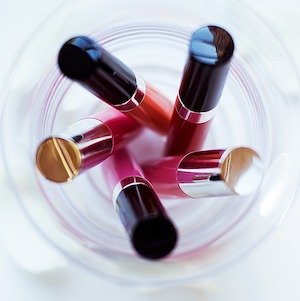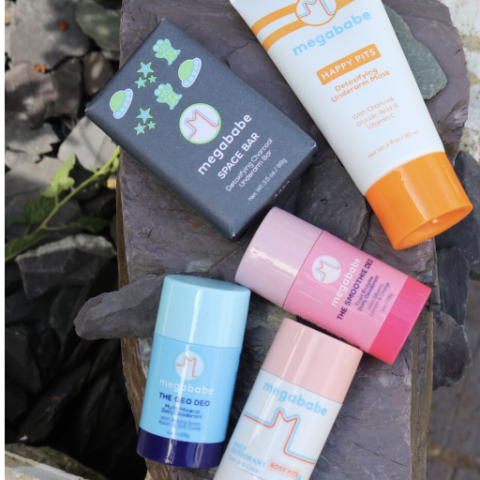Bourgeoisie; The Fragrance Find
By Jo Phillips
It is not often that we find a new fragrance, but when we do it is a most welcome surprise. To make things even harder, there are now literally hundreds, if not thousands, of niche perfume brands, so it’s even harder to decide what constitutes a ‘niche brand’.
Introducing a perfumer we can certainly put in the niche category, whose collections are cruelty-free, vegan and, most of all, delicious.
Meet Aaron Terence Hughes and his self-named fragrance collection.
Hughes has consistently talked of ‘being highly aware’ of his ‘sense of smell’. He grew up on a flower farm in Cornwall, and some of his earliest memories are of the ozonic smell of the sea and flowers.
Even as a child, he spent his pocket money on essential oils and visited the chemist Boots to smell fragrances. One of his first buys was Kouros, a YSL scent form 1981.
It never occurred to this young fragrance-lover that he could become a perfumer. To him it was just a mere obsession, so he became a hairdresser instead. However, continued to spend much of his wages on scent.
Later, he chose to further his education by getting GCSEs, A-levels and a chemistry degree. This started his journey towards creating fragrance, allowing him to buy perfume chemicals and essential oils and mix them together to create new scents. He was able to learn from chemistry books, watching tutorials and experimenting.

After 3 years he created his first perfumes: Jasmine, Amber and Rose. Now, his collection contains 12 scents. Let’s start with his Neroli, a 20% concentration described as: ‘soft and gentle, Neroli captures summer in a bottle’.
Neroli, the exquisite floral notes of orange blossom from the bitter orange tree, opens at the top. From there, the fragrance flows towards a middle of sumptuous and intoxicating jasmine sambac, then finishes with a fresh woodiness via a soft light sandalwood. It is devastatingly delicious and sits on the skin in a sort of chypre style, the most modern of perfumes.

It is fresh and floral, but also bright and alive whilst green and dry. It even has a sense of the rooty earthiness of iris (orris). Neroli stands alone for its own merits, but the ingredients alone hardly explain the magic of the scent. Sometimes, a comparison may help. If Neroli was reminiscent of anything, it would be one of the greatest perfumes ever created: Chanel no. 19.
We spoke with Aaron Terence Hughes, this most mysterious of perfumers, to find out more about his journey. Below is what he had to share with us.
Where did your journey with fragrance begin?
I’ve always loved things that have a fragrance. Growing up in Cornwall, on a flower farm, I was surrounded by fragrance from trees, all types of flowers, ozone, fish and chips and even things you wouldn’t think had a smell, like granite stones. There were also smells of bark, wet spring earth, the chicken shed, chicken feathers, our Burmese cats, freshwater set[ting] free from being frozen by the winter and the smell of dark brooding clouds filled with heavy rain. When I look back, every memory has a scent attached to it.
So, who in this world influenced you?
No perfumers. That’s why I created my own. No fragrance felt like mine. But musicians and artists have inspired me to create my art, from [Alexander] McQueen to Alexia Banks’ fierce rapping. I actually identify with McQueen 100%. His creative process is similar to mine.
Are you a trained nose? If so, are you classically trained or self-trained? Or do you work with a nose?
I’ve been on a few courses and did a year learning perfumery in my first year of university. My fragrance is so unique because I am not trained with classic houses. My fragrance style comes from hundreds and thousands of experiments. Learning what happens when I put a new compound into a blend. You’ll notice that each one of my fragrances has a unique feel. A bit dirty, mixed with exquisite beauty. Each one is an extension of me. Each fragrance has its own story.
Can you tell us a little about how you go about sourcing your ingredients?
I buy essential oils from fair trade suppliers. The oud I use is farmed to protect the environment. The reason my creations smell so unique is that I use my chemistry degree to create tinctures. Some of which take a year to make. I am developing an oud concentrate that uses real oud, but I am doing something magical with the wood before I extract it.
So how do you develop a fragrance? Where do your ideas come from? Is it the ingredients first, or is there a story that comes to mind that you want to turn into a scent?
It depends on what inspires me. Oud was developed after the Madonna Confessions concert. Leather, oud, rose, sandalwood, and sex.
Neroli was because I wanted a long-lasting fragrance. I smelt organic neroli and had to create it.
Rose is the most complex fragrance. I developed over 80 compounds and took a year. That is a story. I wanted a woody, sweet but massively complex version.
I develop the core really fast and then I take months to harness it to perfection. I then send the fragrance out to people and ask what they think. I then re-develop the fragrance. But I know when it’s perfect; I get a lingering feeling in my heart.
Can you tell us a little bit about the development times of some of your fragrances?
Patchouli Noir was the latest fragrance release. I was listening to Massive Attack and Depeche Mode. This is dark, very long-lasting with a sweet chocolate centre. I use real chocolate beans in this one. Most of my work takes 6 months. I generally work on 10 fragrances at a time.
How do you want people to feel when they spray a perfume of yours?
Happy, content, excited, sexy and very cool.
What do people gain by buying into a small brand like yours? What do they also gain from buying from you, as opposed to, say, big-labelled brands?
Because the large brands tend to use the same perfumers, they all smell similar. I don’t think there has been a really unique or exciting creation for years. By buying my work, people are supporting a unique, exciting British brand.
Ethics are so important to me. I always source from companies that do not support slavery, child slavery or the destruction of wild, beautiful agar trees. I will never test on animals or use animal compounds in my work. Every large company that sells in China is testing on millions of animals. It doesn’t matter how much money I would get offered, I would never do that.
When do you know a perfume is ready? Do you feel it in your gut? Do you test on a lover, friends or family?
I test on people who I trust. But I know because I get a knowing tingle from my head to my lower spine. I know what I am trying to create before I get there, so I know when it’s arrived.
Find out all about his world at his website: www.aaronterencehughes.co.uk/





